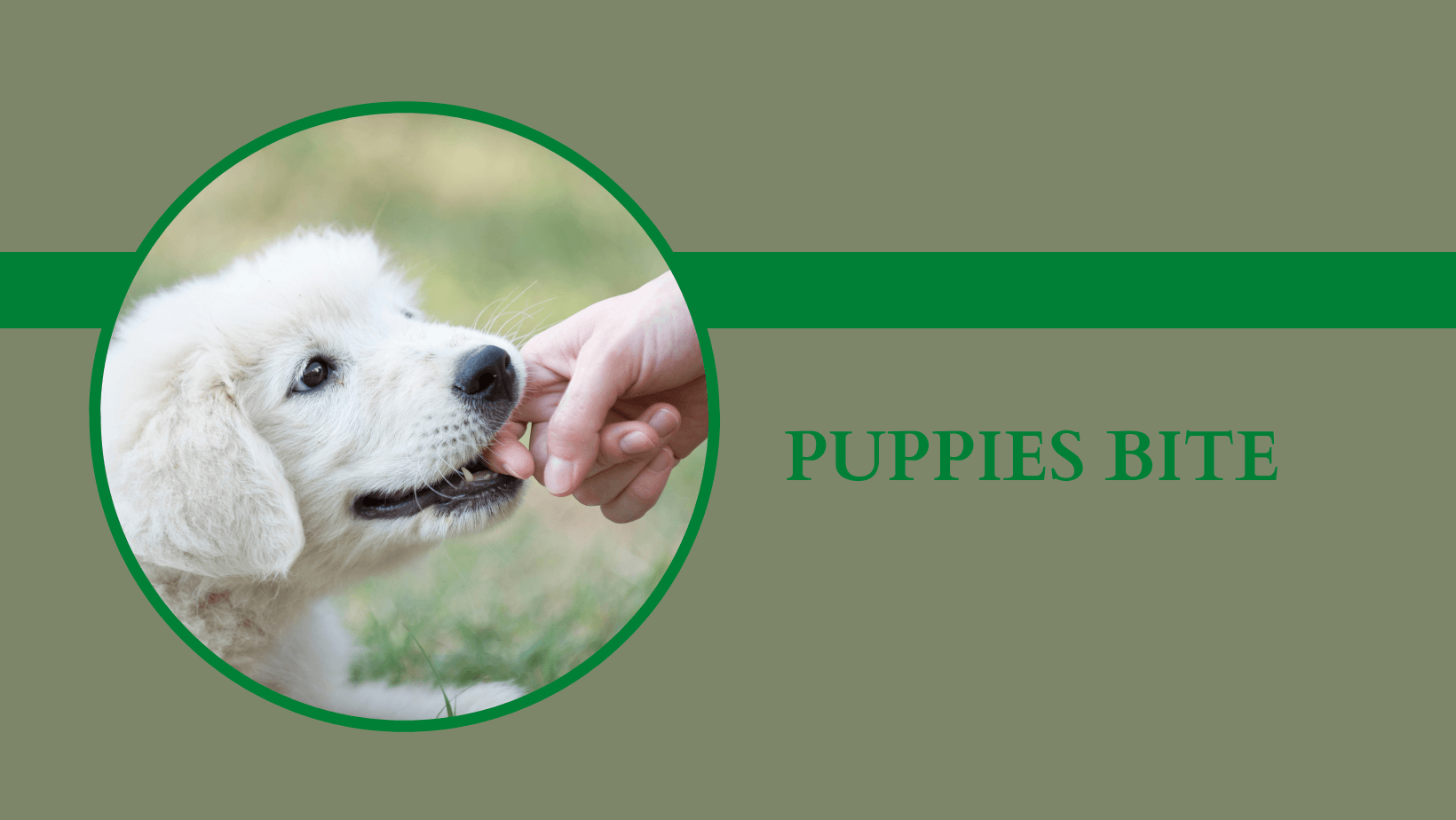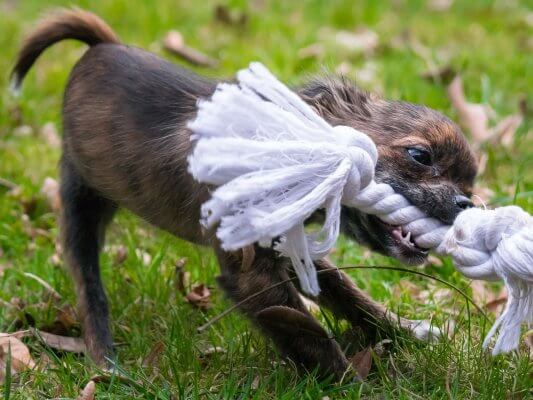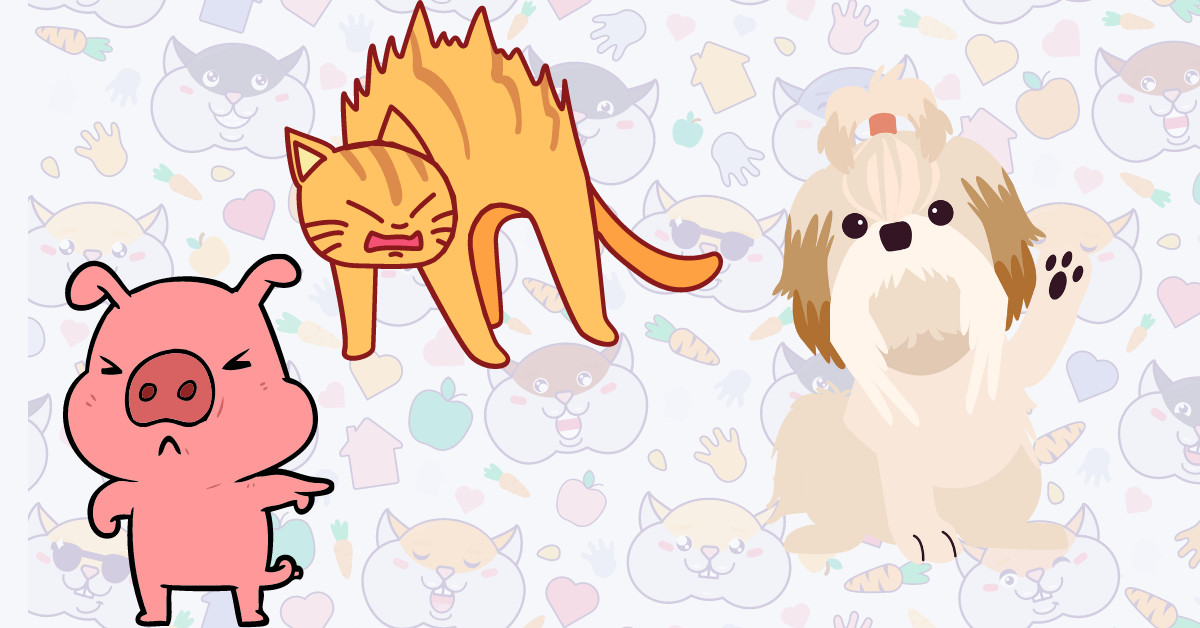A puppy’s teeth have undoubtedly nipped you if you have one at home. Sometimes it feels more like you’ve brought a tiny alligator or shark into your home than a cute puppy because of those razor-sharp puppy fangs.
It’s crucial to realize that for a puppy, using their mouth and teeth is a perfectly normal activity and how they frequently communicate and play, even though you might be ready for the four-legged, young shark to be through their biting stage.
You should take several steps to stop your puppy from biting and divert the habit to more suitable targets rather than your fingers, even though you may hope they would “grow out of it.”
7 Reason why puppies bite so much
Here are the 7 significant reasons puppies bite so much:
1-Overtired
Have you ever been around an overtired toddler? They act less logically, scream more, have more tantrums, and generally make you wonder if they have any self-control at all.
Puppies resemble young children. Overtired puppies frequently exhibit weaker impulse control than untired puppies. Our puppies become irritable and snappy and frequently have full-on zoomies when they overtire.
2-Overexcited
Puppies may be biting more frequently than usual if they’re over-excited. They often can’t manage their emotions, like two middle schoolers crying and screaming when they meet each other for the first time since summer break ended. Puppy may need a brief break to try and calm down if you notice them becoming overexcited. Working with your dog on impulse control from a young age is crucial! Impulse control must be often trained because it is NOT instinctive.
When a visitor enters the house, your puppy wants to interact! Unfortunately, kids frequently opt to speak during conversations.
3-Frustrated
When puppies become frustrated, they frequently bark and bite, unlike when humans occasionally scream. Your puppy may be irritated if they can’t play, get to something amusing, or even be hungry or bored.
That is frequently the cause of your dog biting at a baby gate, crate door, or other obstruction, preventing them from getting what they want! Puppies typically bite because of their frustration with things we wouldn’t expect them to. If your puppy seems to be biting without cause, look for any underlying issues that might upset them.
4-Trying to say “NO.”
Although our puppies cannot speak to us yet, they will try to do so in various ways. Have you ever picked up a puppy, and it immediately began nibbling wildly at your hands? He might be trying to reject you!
Therefore, the next time you do something, and your puppy bites you right away, consider what your dog might be trying to tell you! They might be rejecting what you’re doing!
5-Playing
Observing a puppy play date is one of my favorite aspects of owning a puppy.
- They square off.
- They prick.
- They scratch at one another.
- They pursue each other closely.
- The pursue.
For them, it is SO much fun! On the other hand, Puppies frequently want to attempt to play with you with their mouths, which is unfortunate for your hands and ankles.
If you try to flee and move your hands erratically, your dog might start chasing after you. Guess what follows the chase? A BITE! To teach a puppy not to bite be mindful of your interactions with your puppy. When you want to play with your puppy, have a sturdy tug toy or another item to get their mouth involved! Because if you don’t, they’ll probably decide to “play” with your hands.
That is another reason I wholeheartedly endorse and adore using a flirt pole with a snappy puppy! While keeping your hands far away from those tiny shark teeth, you get to activate the entire Prey Drive Sequence!
6-Teething
When pups are teething, this is frequently when they bite the most! Your dog will most likely go through the puppy teething stage between the ages of 12 and 16 weeks; However, this can vary. It can hurt them as their adult teeth begin to erupt. So they frequently bite on objects to try and relieve the agony. Your aim should be to provide them with appropriate chewing objects or outlets.
The following items can assist your teething puppy feel less pain and stop biting or chewing on you as much.
- Frozen treats
- Long-lasting-puppy-safe chews
- Teething-specific toys
- Chew toys
Give your puppy as many healthy and secure chewing options as possible during this challenging biting stage!
7-Need to go potty
Even though it might not be commonplace, your puppy occasionally tries to let you know that it needs to go potty. It might bite you to let you know it’s time for a bathroom break if they cannot use toilet bells or whimper by the door.
Therefore, if your dog suddenly starts biting, think about taking them outside for a bathroom break. Again, following a timetable for using the restroom will be helpful.
How to get a puppy to stop biting
Puppy nipping can occur for a variety of reasons. Nipping can be a behavior that eases teething or a way for babies to gain attention, let off steam, connect, and explore their environment. Pet parents try to prevent nipping since it can still be painful for the recipient, regardless of the reason.
Before it becomes a severe issue, there are specific techniques to teach a puppy not to bite, such as:
1. Utilizing chewing toys. One strategy to prevent your dog from concentrating their mouthy energies on an approved spot and educating them on what biting habits are appropriate is to distract them and redirect their biting to safe and durable chew toys.
2. Using constructive criticism. When your dog displays the desired behavior, apply positive reinforcement. Praise and reward your puppy, for instance, when they comply with your command to halt unwanted biting or decide on a suitable teething toy on their own.
3. “Ouch!” is said. Next time your pup gets excited and tries to nip, say OUCH! Being startled and stop playing with your dog right away. Your puppy should figure out that their type of play is no longer acceptable, just like they did with their littermates. When they pause, continue the space by giving praise, treats, or other positive reinforcement.
4. Ensuring that your dog receives the appropriate amount of exercise. Each dog has varied activity requirements based on its breed and size, so consult your veterinarian to ensure your dog is getting the exercise they require. Puppies, in particular, need playtime to burn off excess energy in dogs. Your dog could turn to play biting if they have too much pent-up power. Extra nips can be reduced by having children use their energy constructively, such as through physical and mental exercise.
5. Being reliable. It takes time, repetition, and consistency to train a dog. Your dog will acquire the desired behavior with the correct training methods and dedication. Even though it would be simpler to occasionally ignore a tiny bit of nipping behavior, be sure your cues and redirection are consistent. Your dog will understand the boundaries this way.
6. Allowing each encounter with your dog to serve as a teaching moment. While there are times set out specifically for training, every interaction you have with your dog has the potential to be a teaching opportunity.
When do puppies stop teething?
Fear not; teething will ultimately end if you think it’s a large part of your dog’s biting behavior. All of your pet’s puppy teeth should have fallen out by the time it is six months old, and the 42 adult teeth should have begun to erupt.











